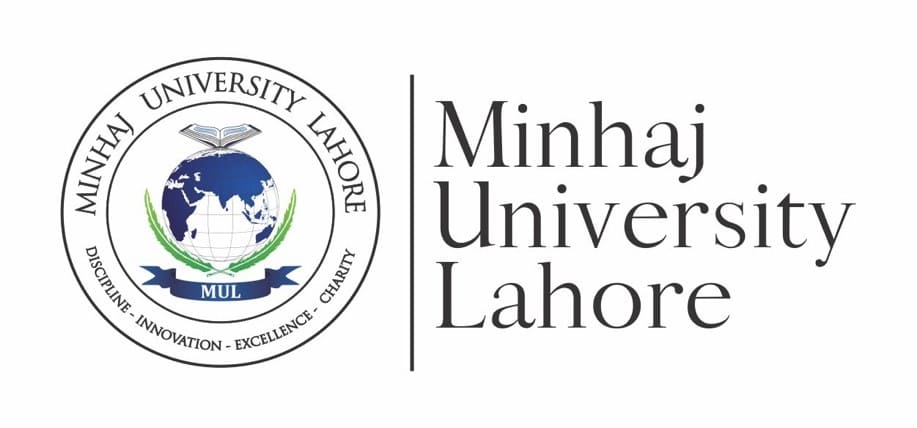The Efficiency of Waqf Practice in Human Resource Development: Evidence from Different Countries
DOI:
https://doi.org/10.58932/MULD0025Keywords:
Waqf, Economic welfare, Human resource development, Poverty alleviationAbstract
Waqf is as an Islamic charity foundation for the realization of goals through property and finance allocated to a legal foundation. In Muslim countries, there are many projects [1]that are operated through waqf benefices and assets. Waqf is often channelled to humanitarian projects, cultural, economic, health, education and training, among other social welfare projects. This paper discusses the efficiency of waqf practice in human resource development, particularly in Algeria, Bangladesh, Sudan, Morocco, Indonesia, Singapore, Kuwait and Malaysia. The significance of this paper manifests in its analysis of the waqf models practiced in the sampled countries from which the paper concludes that waqf is inefficiently managed in Indonesia, Bangladesh, Algeria and Morocco. However, waqf is efficiently practiced in Singapore, Kuwait, Sudan and Malaysia. The study raises awareness of the role of waqf in social development. It attempts to define a new approach which attempts to merge waqf models from successful countries with those in which waqf appears to be inefficient particularly in regards to its application for the development of human resources. Furthermore, the paper claims that waqf is the most suitable mechanism for poverty alleviation.
References
Abdelbaqi, I.M (2007). Waqf and its Role in Scientific, Cultural and Intellectual Development Kuwait Awqaf Public Foundation an Example, Volume: 33 Issue: 126 2007.
Abdul-Karim, S. (2010). Contemporary shari'ah structuring for the development and management of waqf assets in Singapore (Doctoral dissertation, Durham University).
Affandi, A., & Nufus, D. N. (2010). Analysis on cash waqf return fund allocation in Indonesia: A case study in Indonesian waqf deposit. In Seventh International Conference-The tawhidi epistemology: Zakat and waqf economy (pp. 119-135).
Ahmad, M. M., & Safiullah, M. (2012). Management of waqf estates in Bangladesh: Towards a sustainable policy formulation. Waqf laws and management (with special reference to Malaysia), 229-262.
Ahmed, H., & Khan, A. (1998). Strategies to develop waqf administration in India (No. 49). The Islamic Research and Teaching Institute (IRTI),
Akhter, W., Akhtar, N., & Jaffri, S. K. A. (2009). Islamic micro-finance and poverty alleviation: A case of Pakistan. Proceeding of the 2nd CBRC, Lahore, 1-8.
Al-Ayouni, A. (2011). The Endowment’s Contribution to Financing Educational and Cultural institutions in Morocco during the Twentieth Century, Kuwait: The General Secretariat of Endowments.
Augustinus, C. (2005). Islam, Land & Property Research Series Paper 7: Waqf (Endowment) and Islamic Philanthropy.
Basar, H. (1984).Management and Development of Awqaf Properties, Proceedings of the Seminar held on 07 to 19
Dhul Qada, 1404H (04-16 August, 1984), Islamic Research and Training Institute, Islamic Development Bank, Jeddah, Saudi Arabic, 1407H-1987. P. 81
Basar, H., & Islamic Research and Training Institute (Saudi Arabia). (1987). "Management and Development of AWQAF Properties": Proceedings of the Seminar Held on 07 to 19 Dhul Qada, 1404H (04-16 August. Islamic Research and Training Institute, Islamic Development Bank.
Bte Abdul Karim, S. (2010). Contemporary Sharia compliance structuring for the development and management of Waqf assets in Singapore (Special feature: Islamic finance at the current stage: scope and issues). , 3(2), 143-164.
Budiman, M. A., & Kusuma, D. B. W. (2011, January). The economic significance of waqf: a macro perspective. In 8th International Conference on Tawhidi Methodology Applied to Microenterprise Development.
Chepkwony, K. C. (2008). Islamic philanthropy: The case of Waqf in poverty alleviation and social economic development. Bologna University.
Cizakca, M. (1998). Awqaf in history and its implications for modern Islamic economies. Islamic Economic Studies, 6(1).
Faizah, S., & Laila, N. (2013). Productive waqf as one of the problematic to unemployment in Indonesia, Shariah economic department, economic and business faculty airlangga university, Indonesia
Gundogdu, A. S. (2019). Poverty, hunger and inequality in the context of zakat and waqf. darulfunun ilahiyat, 30(1), 49-64.
Haneef, M. A., Muhammad, A. D., Pramanik, A. H., & Mohammed, M. O. (2014). Integrated waqf based Islamic microfinance model (IWIMM) for poverty alleviation in OIC member countries. Middle-East Journal of Scientific Research, 19(2), 286-298.
Harun, R., Isa, Z. M., & Ali, N. (2012, January). Preliminary findings on waqf management practices among selected Muslim countries. In International Conference on Economics Marketing and Management (Vol. 28, pp. 117-120). Singapore: IACSIT.
Hassan, A., & Shahid, M. A. (2010). Management and development of the awqaf assets. In Seventh International Conference—The Tawhidi Epistemology: Zakat and Waqf Economy, Bangi (pp. 309-328).
Ibrahim, H., Amir, A., & Masron, T. A. (2013). Cash waqf: An innovative instrument for economic development. International Review of Social Sciences and Humanities, 6(1), 1-7.
Ihsan, H. (2007). An exploratory study of waqf accounting and management in Indonesian waqf institutions: the cases of Dompet Dhuafa and Universitas Islam Indonesia (UII) Waqf Foundations (Master's thesis, Gombak: International Islamic University Malaysia, 2007).
Ihsan, H., & Ibrahim, S. H. H. M. (2011). Waqf accounting and management in Indonesian waqf institutions. Humanomics.
Islahi, A. A. (2004). Role of awqaf in promotion of scientific research. Islamic Economics Research Center, King Abdulaziz University
Johor Corporation Report, (2008), https://jcorp.com.my/wp-content/uploads/2020/10/annual-2008-1.pdf.
Kahf, M. (1992). Waqf and its sociopolitical aspects. IRTI, Jeddah, Saudi Arabia.
Kahf, M. (2003). The role of waqf in improving the ummah welfare. In International Seminar on Waqf as a Private Legal Body (pp. 6-7).
Kahf, M. (2012). Role of Waqf in Sustainable Development: Waqf and Sustaining Economic Development. Retrieved from http://www.onislam.net/english/shariah/ contemporary-issues/islamic-themes/452593-Waqf-and-sustaining-economic-development.html
Kamaruddin, N. (1992). Isu pembangunan tanah wakaf di Malaysia. (1st ed.). Kuala Lumpur: Dewan Bahasa dan Pustaka
Khan, F. (2001). Waqf: An Islamic instrument of poverty alleviation-Bangladesh perspective. In International Conference-The Tawhidi Espitomology: Zakat and Waqf Economy. Bangi (pp. 65-96).
Muhammad, I. N. (2010). Scholars, merchants and civil society. Humanomics. Vol. 26, pp.139-157
Sadeq, Abulhasan M. (2000), Awqaf in Bangladesh, p-159
Saduman, S., & Aysun, E. E. (2009). The socio-economic role of waqf system in the Muslim-Ottoman cities’ formation and evolution. Trakia Journal of Sciences, 7(2), 272-275.
Sait, S., & Lim, H. (2005). Waqf (endowment) and islamic philanthropy. Un Habitat, Islam, Land & Property Research Series, 20.
Sait, S., & Lim, H. (2006). Land, law and Islam: property and human rights in the Muslim world (Vol.1).Zedbook
Sayin, B. (1998). Pentadbiran dan pengurusan harta wakaf di Semananjung Malaysia.
Siswantoro, D., & Dewi, M. K. (2007). The effectiveness of waqf fund raising through mutual fund in Indonesia. In Singapore International Waqf Conference (Vol. 7).
Witjaksono, B., Mariyanti, T., Nasution, M. E., Huda, N., & Rini, N. (2019). Factors which influence the intention of community in cash waqaf in sharia banking with theory planned behaviour (TPB) modification approach. Journal of Islamic Banking and Finance, 7(2), 50-58.
Downloads
Published
How to Cite
Issue
Section
License
Copyright (c) 2024 Mohamed Khalifa Sidi, Mansha Rafiq

This work is licensed under a Creative Commons Attribution-NonCommercial 4.0 International License.









